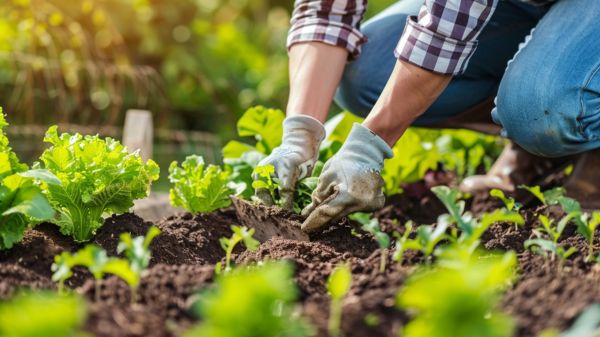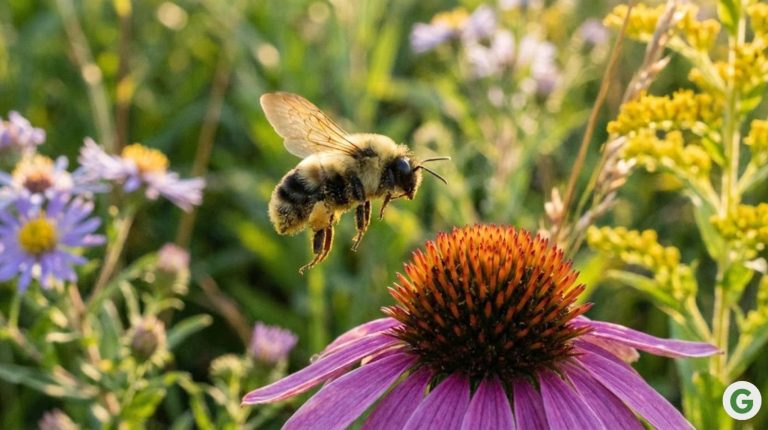In the domain of gardening, the shift towards organic methods has been driven by the growing awareness of the adverse effects of chemical pesticides on both the environment and human health. Eco-friendly pest control solutions for vegetable gardens offer a compelling alternative.
These methods, which encompass a range of natural products and techniques designed to protect vegetable gardens without the use of harmful chemicals, not only guarantee the safety of the produce but also contribute to the sustainability of the gardening ecosystem.
As we explore these natural solutions, one might ponder how effective these organic options are compared to their chemical counterparts and what trade-offs, if any, might be involved.
Understanding Garden Ecosystems
Understanding garden ecosystems is fundamental, as pests, while often seen as nuisances, are actually important indicators of a garden’s health and biodiversity. In the domain of organic gardening, the presence of pests can attest to the liveliness of plants, signaling a balanced ecosystem that supports a variety of life forms, including beneficial insects.
These beneficial insects play significant roles in natural pest control, helping to maintain the health of the garden without the need for chemical interventions. A well-balanced garden ecosystem relies on such natural predators to regulate pest populations, thereby reducing the occurrence of severe pest infestations. This approach not only promotes healthier plants but also guarantees a sustainable gardening practice that aligns with ecological principles.
Additionally, techniques such as companion planting can enhance this balance by attracting the right insects and deterring pests naturally. Adopting organic pest control methods, grounded in understanding and working with garden ecosystems, supports plant health and contributes to a robust garden environment.
This holistic view fosters a deeper appreciation of how interconnected and dynamic a garden ecosystem is, guiding gardeners to make informed, liberative choices that benefit both the environment and their gardening success.
Related Post: 15 Organic Soil Enhancement Tips for Outdoor Gardens.
Impacts of Chemical Pesticides
Frequently, chemical pesticides not only target pests but also disrupt entire ecosystems, impacting non-target species and beneficial insects essential for a healthy garden environment. The indiscriminate use of these chemicals can decimate populations that pollinate plants and control pest outbreaks naturally, thereby upsetting the balance vital for organic food production.
Beyond the immediate vicinity of application, chemical residues from pesticides infiltrate water supplies, contributing to broader ecological and human health concerns. Studies have revealed that a staggering 90% of individuals tested carry detectable pesticide byproducts in their urine, underscoring the pervasive nature of these substances. Such widespread contamination speaks volumes about the routine exposure we face, often unknowingly, through our environment and food sources.
Particularly alarming are the impacts of neonics, a widely used class of pesticides, which have been strongly linked to declining bee populations—essential pollinators in our food system. Over recent years, beekeepers across the U.S. have reported a 33% loss in hives, a statistic that highlights the detrimental effects of these chemicals on critical biodiversity.
Moreover, the health issues prevalent among farm workers and their families underscore the urgent need to reconsider conventional pest control methods. The pursuit of a sustainable, harm-free gardening practice is not only possible but necessary for the well-being of our ecosystems and ourselves.
Organic Pest Control Methods
Turning to organic pest control methods offers gardeners sustainable alternatives that effectively minimize pest populations without harming the surrounding ecosystem.
Among these methods, Floating Row Covers not only block common pests such as aphids and cabbage moths from reaching vegetable gardens but also protect plants from birds and inclement weather. This barrier can be particularly effective throughout the growing season when pollination isn’t necessary.
For targeted treatment against soft-bodied insects like aphids and spider mites, Insecticidal Soap is a reliable choice. This method involves spraying a diluted solution onto the leaves with a spray bottle, ensuring complete coverage to break down the insect’s protective cuticles. It’s crucial to reapply every 5-7 days as new pests emerge.
Neem Oil Spray is another cornerstone of organic pest control. When sprayed at the onset of a pest infestation, it disrupts the life cycle of pests such as squash bugs and potato beetles. Regular reapplication every 7-10 days enhances its effectiveness.
Additionally, introducing Beneficial Nematodes into the soil combats underground pests like root maggots, ideal when soil temperatures are around 60 degrees Fahrenheit.
Plant Protection Techniques
To safeguard vegetable gardens, implementing robust plant protection techniques is essential for maintaining healthy and productive crops. One effective method is the use of floating row covers, which not only shield plants from pests such as aphids and cabbage moths but also protect against birds and harsh weather. These covers are particularly useful during periods of peak pest activity, offering a physical barrier that promotes a thriving vegetable garden.
In addition to physical barriers, organic pest control options like insecticidal soap and Neem oil provide safe and effective solutions. Insecticidal soap targets soft-bodied insects, including aphids and spider mites, by dehydrating them and requires application every 5-7 days. Neem oil, on the other hand, disrupts the life cycle of pests such as squash bugs and potato beetles, with reapplication needed every 7-10 days to achieve the best results.
For soil-dwelling pests, introducing beneficial nematodes into the soil can be transformative. These microscopic roundworms prey on pests like root maggots and cutworms, greatly reducing their populations.
Furthermore, hand-picking pests such as slugs and tomato hornworms is a direct and immediate method to keep your garden healthy, especially when combined with other techniques like encouraging natural predators.
Community and Gardening Resources
Building on individual efforts in plant protection, engaging with community and gardening resources can further enhance the effectiveness and sustainability of organic gardening practices.
Leveraging community support and educational resources empowers gardeners to adopt more sustainable practices and tackle challenges such as garden pest control with organic solutions. Local farms practicing sustainable agriculture not only serve as a beacon of successful organic gardening but also provide essential soil improvement insights that can dramatically transform your garden’s health.
Gardenary-certified coaches offer personalized guidance through virtual sessions, assisting gardeners in refining their techniques and deepening their understanding of organic gardening. The Gardenary 365 program is an invaluable resource that delivers ongoing educational content, focusing on aspects like organic pest management, which is critical for maintaining a healthy garden ecosystem.
Additionally, workshops and virtual sessions hosted by experienced gardeners promote a collaborative learning environment. These gatherings are a platform for exchanging knowledge on how to improve your soil organically and implement more effective plant protection strategies.
Conclusion
To sum up, the adoption of organic solutions for vegetable garden protection supports a sustainable and balanced garden ecosystem.
By employing methods such as floating row covers, insecticidal soaps, neem oil, and beneficial nematodes, gardeners can effectively manage pests while preserving beneficial insect populations.
These practices not only enhance plant health but also contribute to the broader goal of environmental stewardship, ultimately fostering a healthier habitat for both plants and wildlife within the garden community.




